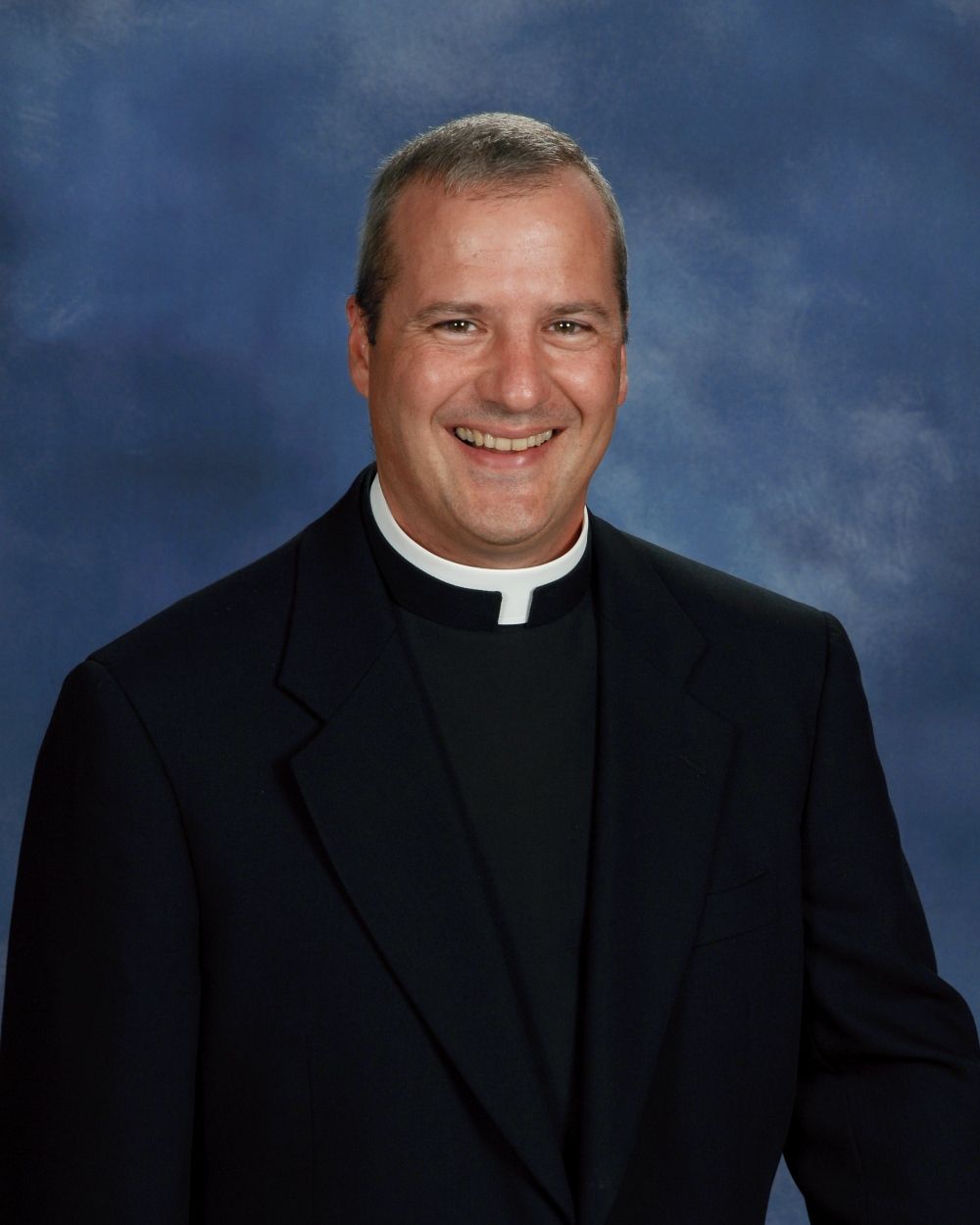From The Pastor's Desk
Love Your Enemies

"You have heard that it was said, 'You shall love your neighbor and hate your enemy.' But I say to you, love your enemies, and pray for those who persecute you, that you may be children of your heavenly Father" (Matthew 5:43-44)
We are told very clearly by Christ in the above Gospel passage to love our enemies. There really isn't any way around such an explicit command of the Lord. I think this command to love our enemy is made even more binding upon hearing also the words of Jesus as he hangs, dying on the Cross, "Father, forgive them, they know not what they do." The followers of Jesus have no choice but to love their enemies.
So I guess it's important to first figure out who are enemies are so that we can love them. The word "enemy" is derived from the Latin word "inimicus" which comes from the words "in" (not) + "amicus" (friend). Even deeper, "amicus" comes from the Latin word "amare" to love. So a friend is one that loves us and a "not-friend", an enemy, is one who does not love us. I think though, in common usage, an enemy is better de-scribed as one who has or seeks to harm us in some way. I think we all can identify with that. It's a true spiritual challenge to reach out in love to those who have and/or are trying to hurt us. But we need to make sure we don't tag everyone who has hurt us with the "enemy" label. I'm sure we all can think many times that we ourselves have hurt someone by a careless word or deed. Enemies aren't negligent or thoughtless, they want to hurt us. It's an important distinction.
Frankly, I think it's pretty much impossible to love our enemies without the grace of God. And I think here is the core of the command. Like so many teachings of the Lord, loving our enemies does not come naturally to our fallen human nature. The Lord is calling us to rise above our fallen humanity; something that can only be done through his grace. The command to love our enemies is another example of our need to call upon the infinite treasure of grace and strength that comes from Christ to do something that we can't do otherwise. This treasure is available to those who strive to live an authentic Christian life and have a true friendship with the Lord through the practice of our faith and the worthy reception of the sacraments. You are never going to make a key five foot putt if you don't practice putting. We are not going to be receptive to the grace of Christ if we do not practice our faith.
We will never be able to forgive or to love our enemies if we are not close to the Lord. And the problem with this is that if we don't forgive them and don't love them, we are going to be miserable. Our enemies are our enemies for some reason, they probably don't care that they hurt us, heck, that is what they try to do! Wallowing in hatred and anger for someone who has no concern for us is pointless. So there is also a practical wisdom in this teaching, it's good for us to love them. But above all, I think it is our prayer, the prayer of the one injured for the one who has injured, that merits a special hearing in God's presence. Probably more than anything else that can help the conversion of such a person through God's mercy, is a prayer offered on behalf of the enemy by the one who has been wronged.
No talk about enemies is complete without a reminder that we are to be no one's enemy. Ever. While we may defend ourselves and our loved ones from harm though moral means,intending to harm someone in any way - whether it is physically, emotionally, spiritually, harming their reputation, taking away their friends, revealing their faults and sins - is a grave sin and cries out to God for justice. If we do, we'd better hope that the person we've harmed listens to the command of Jesus to "love your enemies" or we are going to be in big trouble.
God bless you,
Father Joseph Byerley
"How splendid the cross of Christ! It brings life, not death; light, not darkness; Paradise, not its loss. It is the wood on which the Lord, like a great warrior, was wounded in hands and feet and side, but healed there-by our wounds. A tree has destroyed us, a tree now brought us life" (Theodore of Studios).
Related Articles • More Articles
Follow Us
Mass Times
All Rights Reserved | St. Rose of Lima






